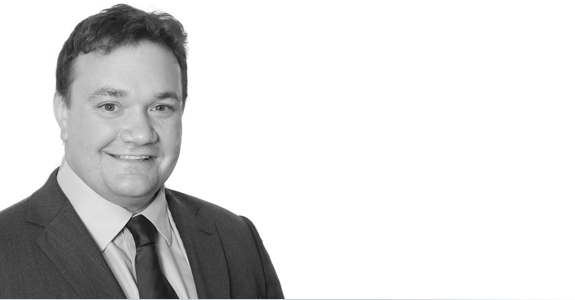Briefings
Supreme Court clarifies when non-party costs liability arises
On 30 October 2019 the Supreme Court handed down its decision in Travelers Insurance Company Ltd v XYZ1, which will be welcomed by liability insurers.
The decision concerned the making of a non-party costs order under Section 51 of the Senior Courts Act 1981. This section provides the courts with a wide discretion to make costs orders, but as a general rule the courts do not routinely exercise the discretion for obvious reasons. In order to justify such an order, the non-party needs to have become connected to those proceedings in some way.
In handing down the leading judgment, Lord Briggs, with whom Lady Black and Lord Kitchin agreed, overturned the underlying decisions of Lady Justice Thirlwall at First Instance 2 and the Court of Appeal (Patten and Lewison LJJ)3. The Supreme Court found that the non-party costs order against Travelers was not justified. Whilst the facts of the case were unusual and unlikely to arise very often, in giving its decision, the Supreme Court gave some helpful guidance on what it is necessary to show for a successful application for a non-party costs award.
The Facts
A large number of claims (623 in total) were brought against Transform Medical Group (CS) Ltd (“Transform”), a medical clinic which had supplied defective silicone implants for use in breast surgery, manufactured by Poly Implant Prothèse (“PIP”). Transform had product liability insurance cover with Travelers Insurance Co Ltd (“Travelers”) in relation to some, but not all, of the claims brought against it. The policy was written on an occurrence basis and the period of insurance ran from 31 March 2007 to 31 March 2011. Consequently, the insurance policy only responded to bodily injury or property damage suffered by the claimants during that period.
Notwithstanding the fact that a significant majority of the claims were not insured, Travelers funded the whole of Transform’s defence. Transform (with Travelers’ agreement) did not disclose until a relatively late stage that a substantial number of claimants were uninsured. The insurance policy only covered the claims of 197 claimants who suffered from a rupture of their implants during the policy period and Transform was uninsured in respect of the remaining 426 claims. To make matters worse for those claimants, Transform entered insolvent administration half-way through the litigation. The uninsured claimants were the Respondents to this appeal.
The insured claims were settled in August 2015, with Travelers paying an agreed proportion of the damages and costs. This left the insured claimants in a much better position than the uninsured claimants - who had obtained a judgment but recovered no damages or costs from Transform at all (due to Transform’s insolvency). The Third Parties (Rights against Insurers) Act 2010 was of no help to these claimants as their bodily injury, the relevant trigger under the policy, occurred outside of the insurance policy.
The 426 uninsured claimants applied to the court for an order that Travelers pay their costs. Lady Justice Thirlwall, sitting in the High Court, held that Travelers should be ordered to pay them. The Court of Appeal (Lord Justice Lewison and Lord Justice Patten) reached the same conclusion but for slightly different reasons.
The Supreme Court’s decision
The court reviewed the previous case law, which indicated that there were two broad approaches to awarding costs against a non-party: (1) whether the third party took control of the proceedings and became the “real defendant”; or (2) whether the third party engaged in “unjustified intermeddling” in the proceedings. In circumstances in which the defendant’s insurance policy did not respond at all the “real defendant” test was found not to be relevant. The key question was therefore whether Travelers had sufficiently intermeddled in the proceedings to justify making a non-party costs order against them.
Lady Justice Thirlwall at First Instance found that Travelers actions had crossed the line and that they had sufficiently intermeddled. Her reasoning was: (1) in her view the uninsured claims were distinct from the insured claims and Travelers should not have been involved in those; (2) Travelers (as wrongly advised, in her view, by its lawyers) delayed in disclosing the insurance policy to the claimants until quite late and so the uninsured claimants (the Respondents in this case) were not in a position to know that their claims were uninsured; (3) Travelers participated in questions as to whether to make offers of settlement or admissions to the uninsured claimants; and, very importantly, (4) there was an asymmetry or lack of reciprocity in costs risks as between the uninsured claimants and Travelers. This was on the basis that if the uninsured claims were successfully defended then Travelers (through Transform) would have a full costs recovery against, inter alia, the uninsured claimants for their several share of the costs. However, if the uninsured claimants were successful against Transform then they would have no recourse against Travelers – absent a non-party costs order.
The Court of Appeal upheld Lady Justice Thirlwall’s decision but for slightly different reasons. The most persuasive factor from their perspective was point (4) above, namely, the asymmetry or lack of reciprocity.
Lord Briggs gave the leading decision and allowed the appeal, on the basis that none of the matters referred to amounted to “unjustified intermeddling”. In addition, he found that none of Travelers’ actions were causative of the Respondents’ losses.
Perhaps unsurprisingly, Lord Briggs said that there was no fixed benchmark which will establish whether the non-party’s involvement has become a form of intermeddling. In every case the nature and extent of the non-party’s involvement will have to be measured against the alleged justification or excuse for it. In circumstances in which the non-party has become involved under a framework of contractual obligations, that is likely to be of primary relevance and might even be decisive. In this case the action was proceeding by way of a group action comprising both insured and uninsured claims. Consequently, Travelers had a perfectly legitimate reason for their involvement in respect of the insured claims and the relevant contractual framework was the liability insurance policy.
In addition, he was of the view that the reliance placed by the courts below on the asymmetry as a factor justifying a non-party disclosure order was misplaced. Travelers’ actions in defending the claims (both insured and uninsured) was not causative of the Respondents’ loss. The Respondents’ loss and the asymmetry was instead due to the fact Transform was insolvent and only some of the claims were insured. In proceeding with the action, without knowing the insurance position, the uninsured claimants had taken the risk of the possible costs asymmetry. He noted that the only sense in which anything done or not done by Travelers may be said to have contributed to that asymmetric outcome for the uninsured claimants was that a decision was made not to provide the claimants with a copy of the insurance policy until quite late in the proceedings. In Lord Briggs’ view that was a legitimate decision and was “not in any recognisable sense an inappropriate intervention by Travelers in the defence of the uninsured claims, as distinct from the insured claims”. The advice had been given in respect of the claims as a whole and not simply in part of the defence of the uninsured claims.
Lord Reed agreed with Lord Briggs and considered the position in Australia, New Zealand and Scotland and noted that in Scotland there was no equivalent concept to “intermeddling”. Lord Sumption also agreed with Lord Briggs and went on to say that unjustifiable intermeddling was the only basis on which a liability insurer might be at risk of having a costs order made against them. He noted that such cases were likely to be rare. A liability insurer has an obvious legal interest in the performance of the insurance contract and providing there is an insured issue – as there was in this case- and the insurer acts in good faith then the insurer should not incur any liability.
HFW Conclusion
This will be seen as a helpful decision for insurers and it gives useful guidance in circumstances in which, as evidenced by the two decisions of the lower courts, the position was unclear. The facts of the case were however unusual, with the insured and uninsured claims, insolvency of the defendant and the group action. However, where a liability insurer is faced with the situation in which it is paying the defence costs of its insured in respect of both insured and uninsured claims, then providing it acts in good faith and in accordance with the policy it should not find itself on the receiving end of non-party costs orders. The Supreme Court’s comments on Travelers’ tactical decision not to disclose the insurance policy will also be seen as helpful guidance to the insurance market.
For more information on Funding, please see our Funding Client Guide, to discuss funding on your particular matter, please contact your usual HFW contact, or our Funding Committee at - funding.committee@hfw.com
For further information, please contact the author of this briefing:
Adam Strong
Insurance Partner and HFW Funding Committee Member, London
T +44 (0)20 7264 8484
E adam.strong@hfw.com
Footnotes
- [2019] UKSC 48
- [2017] EWHC 287 (QB)
- [2018] EWCA Civ 1099


